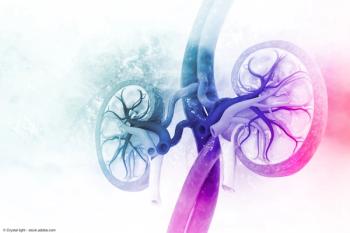
Pediatric patients receive laboratory-grown bladders
The first human recipients of laboratory-grown organs were reported this week by Anthony Atala, MD, of the Institute of Regenerative Medicine at Wake Forest University School of Medicine, Winston-Salem, NC.
The first human recipients of laboratory-grown organs were reported this week by Anthony Atala, MD, of the Institute of Regenerative Medicine at Wake Forest University School of Medicine, Winston-Salem, NC.
“This is one small step in our ability to go forward in replacing damaged tissues and organs,” said Dr. Atala, who is now working to grow 20 different tissues and organs.
In the study in The Lancet (published online April 4, 2006), Dr Atala describes 7-year success in children and teenagers who received bladders grown from their own cells. The trial involved patients from 4 to 19 years old who had poor bladder function because of myelomeningocele. Their bladders were not pliable, and high pressures could be transmitted to their kidneys, possibly leading to damage. The main goal of the surgery was to reduce pressure inside the bladder to preserve the kidneys. Urinary incontinence, which was a problem before the surgery, improved in all patients.
“We have shown that regenerative medicine techniques can be used to generate functional bladders that are durable,” Dr. Atala said. “This suggests that regenerative medicine may one day be a solution to the shortage of donor organs in this country for those needing transplants.”
Newsletter
Stay current with the latest urology news and practice-changing insights — sign up now for the essential updates every urologist needs.






